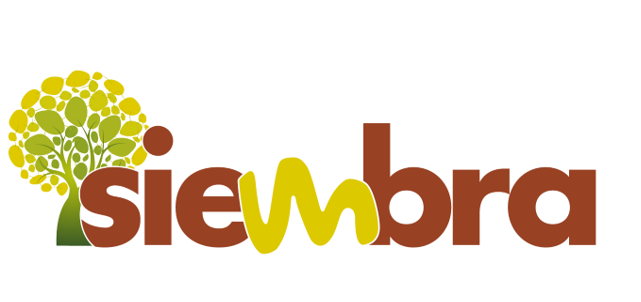Mostrar el registro sencillo del ítem
Abordaje de Contextos desde los Enfoques Narrativos. Departamentos de Antioquia, Atlántico, Bolívar, y Cesar
| dc.contributor.advisor | Delgado Chaves, Martha Isabel | |
| dc.coverage.spatial | cead_-_cartagena | |
| dc.creator | Zúñiga Pérez, Yelisse | |
| dc.creator | Gómez Mosquera, Carol Andrea | |
| dc.creator | Mejía González, Mary Luz | |
| dc.creator | Sandoval, Zamira | |
| dc.creator | De La Hoz Altamar, Angeeleiny | |
| dc.date.accessioned | 2022-05-03T02:13:27Z | |
| dc.date.available | 2022-05-03T02:13:27Z | |
| dc.date.created | 2022-04-28 | |
| dc.identifier.uri | https://repository.unad.edu.co/handle/10596/48413 | |
| dc.description.abstract | La narrativa es una herramienta considerada pertinente para el trabajo con personas que han resultado víctimas de algún tipo de violencia, lo que a su vez causa trauma en las mismas; esta técnica permite un nuevo desarrollo para las víctimas, y encontrar valor así mismo. Al relatar los hechos vividos, la víctima no sólo brinda información a quien le escucha, sino que puede acceder a sus recuerdos de una manera más consciente, e incluso mirar su situación desde una perspectiva dirigida hacia el cambio Para el desarrollo de la presente actividad, cada una de las participantes debió leer un relato a manera individual y escoger entre todos, uno, para trabajar de forma grupal, todo esto con la finalidad de adquirir las capacidades pertinentes para evaluar eventos psicosociales traumáticos utilizando como ejemplo la narrativa y el análisis del relato, y así proponer recursos de afrontamiento psicosocial para ayudar a aquellos que han sufrido a causa de la violencia. Esto se logra con el análisis de los casos a través de la resolución de interrogantes que permiten un acercamiento a los desarrollos conceptuales del enfoque narrativo para analizar los relatos desde un abordaje subjetivo de las víctimas, es decir, aquellos que se desenvuelven en un contexto de violencia. Este abordaje es necesario para lograr identificar, por ejemplo, los factores psicosociales que afectan a la persona que relata la historia o hecho vivido, de qué manera se percibe la víctima frente al hecho de violencia vivido y su realidad actual; a qué aspectos se le da valor después de haber sido víctima de un hecho traumático, de qué forma o a través de qué, una persona víctima por causa de la violencia puede encontrar un posicionamiento resiliente ante la realidad que está viviendo. Una vez identificados estos factores, y con la finalidad de continuar con un acercamiento psicosocial para la contribución de la superación de la condición de victimización, se formulan preguntas circulares, reflexivas y estratégicas de tal manera que se conlleve a la víctima a realizar una reflexión, a conectarse con sus emociones, a reconocer la ayuda que ha recibido y a que se involucre en la creación de estrategias que le ayuden a transformar la realidad resultante de la experiencia vivida. | |
| dc.format | ||
| dc.title | Abordaje de Contextos desde los Enfoques Narrativos. Departamentos de Antioquia, Atlántico, Bolívar, y Cesar | |
| dc.type | Curso de Profundización | |
| dc.subject.keywords | Psicosocial | |
| dc.subject.keywords | Resiliencia | |
| dc.subject.keywords | Social | |
| dc.subject.keywords | Víctima | |
| dc.subject.keywords | Violencia | |
| dc.description.abstractenglish | The narrative is a tool that has been considered relevant for working with people who have been victims of some type of violence, which also has caused trauma in them self, this technique allows a new development for the victims, and to find value. By recounting the events experienced, the victim not only provides information to the listener, but can access their memories in a more conscious way, and even looking at their situation from a perspective aimed to the change for the development of this activity, each of the participants had to read a story individually and choose one of them to work in a group, all with the aim of acquiring the relevant skills to evaluate traumatic psychosocial events using the narrative and analysis of the story as an example, to propose psychosocial coping resources to help those who have suffered as a result of violence. This will be achieved with the analysis of the cases through the resolution of questions that allow an approach to the conceptual developments of the narrative approach to analyze the stories from a subjective approach of the victims, it mean, for those that unfold in a context of violence. This approach is necessary to be able to identify, for example, the psychosocial factors that affect the person who recounts the story or event experienced, how the victim perceives herself in the face of the act of violence experienced and her current reality; to what aspects we are given value after having been the victim of a traumatic event, in which way or through which a person who is a victim of violence can find a resilient position to the reality they are experiencing. Once these factors have been identified, and in order to continue with a psychosocial approach for the contribution of overcoming the victimization condition, circular, reflexive and strategic questions will be formulated in such a way that the victim is led to make a reflection, to connect with their emotions, to recognize the help they have received and to get involved in the creation of strategies that help them transform the reality resulting from the lived experience. Key words: psychosocial, resilience, victim, violence. | |
| dc.subject.category | Psicología |















